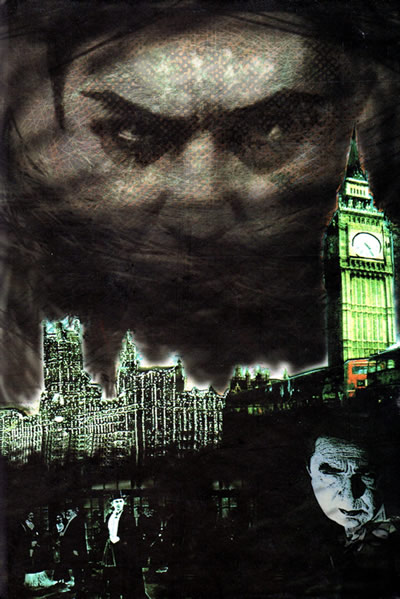
Last Paragraphs of the Epilogue:
Young people who waited at stage doors to meet the great Lugosi are themselves now watching the clock. The monster boomers that came to adore him after his death are on the far side of middle age. Can the image of Lugosi on a screen reach a new generation? In the first edition of this book, the authors questioned whether movie fans of the future could find anything memorable in old, low-budget, low-tech, black & white films, barred by higher powers from showing anything provocative. Yet, against seemingly overwhelming odds, the ranks of Lugosi’s followers have been swollen by a new generation of fans who only discovered him in the new millennium. Thanks in no small part to the Internet and social media, Lugosi’s profile is now higher than at any time since Dracula catapulted him to international stardom in 1931. Conspicuous among his new admirers are the young women, who—like their mothers, grandmothers, and great grandmothers before them—gush with fantasies woven around him.
The caped, exotic vampire still lurks in the shadows. He waits until theatres darken and curtains rise, follows his prey on their lonely walks home, and haunts their dreams and fantasies.
Bela Lugosi’s place in popular culture is secure. Something hardly foreseen when that ailing, struggling, wonderful man spread the last of his special magic across Britain more than 60 years ago.
VAMPIRE OVER LONDON
Bela Lugosi in Britain
Table of Contents
—
Chapter 1
1951 & All That
—
Chapter 2
“Not Even A Single Lifetime”
—
Chapter 3
August 1948 – March 1951
—
Chapter 4
April 1951
—
Chapter 5
May – June 1951
—
Chapter 6
1935 July – August
—
Chapter 7
July – August 1951
—
Chapter 8
September – October 1951
—
Chapter 9
1939 March – April
—
Chapter 10
November – December 1951
—
Chapter 11
First Epilogue
—
Chapter 12
Second Epilogue
—
Appendix 1
Bela Lugosi’s Stage Performances in Dracula
—
Appendix 2
Reviews of the 1951 Dracula in British Newspapers
—
Appendix 3
Bela Lugosi’s British Films
—
Appendix 4
The History of Dracula as Recorded in The Stage, the trade journal of British theatre

